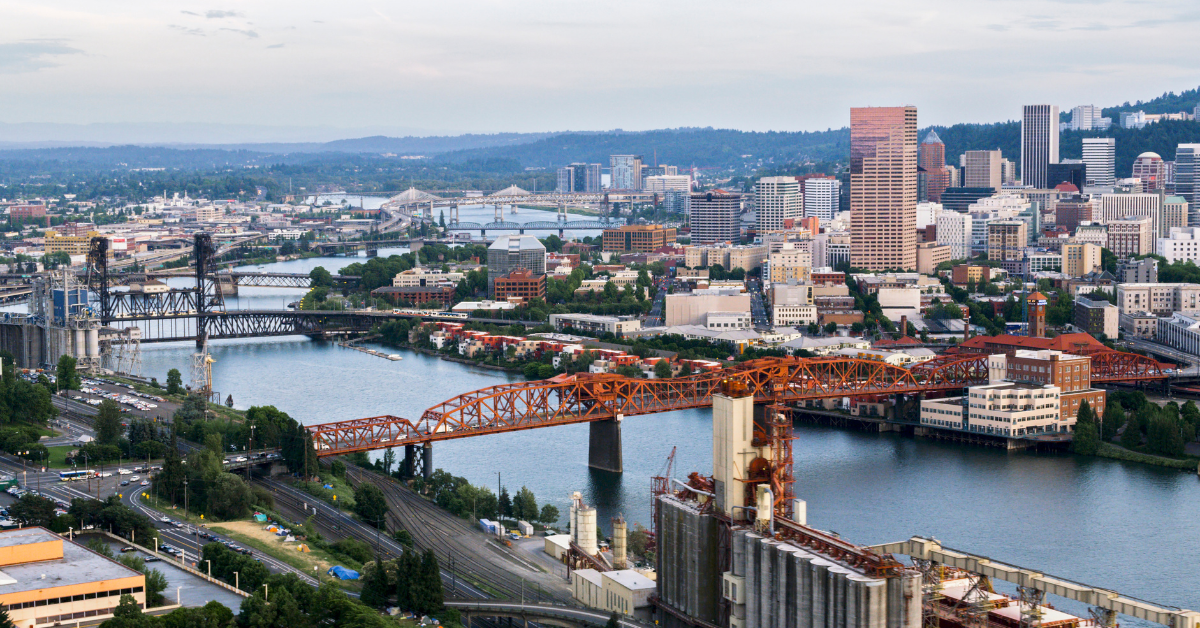Portland is often highlighted in Japan as a city where urban life and nature coexist. However, there is no official kanji representation, and in Japanese, the name is generally written in katakana as “ポートランド.” This article explores why no standardized kanji exists and examines the diverse images Japanese people hold of Portland.
- Why Portland Has No Kanji Representation
- The Image Japanese People Have of Portland
- Japanese Perceptions of Portland
- Portland as a Sports City
- Major Portland Sports Teams
- The Appeal to Japanese People: A Comparison
- Comparison Between Japan and Portland
- Lifestyle Features in Portland
- Connection Between Lifestyle and Sports
- Conclusion
Why Portland Has No Kanji Representation
Background of Place Names Without Kanji
In the past, country names were sometimes transcribed into kanji based on sound. For example, America was written as “亜米利加,” and France as “仏蘭西.” However, city names rarely received standardized kanji transcriptions, and Portland is one such case. Today, almost all official documents and media use the katakana form “ポートランド.”
The Difficulty of Phonetic Transcriptions
One could use kanji such as “港” (port), “浦” (bay), “蘭” (orchid/land), or “土” (earth) to approximate the sounds. For example, terms like “港蘭都” or “浦蘭土” could be invented. However, these are purely creations, lacking standardization and potentially causing misunderstanding. Thus, the natural and accepted representation in Japanese is simply katakana.
The Image Japanese People Have of Portland
Harmony Between Nature and the City
Portland is often referred to as “one of the most livable cities in the United States.” From the city center, one can easily access forests and rivers, enjoying hiking and camping on a daily basis. Compared to Japanese cities, the closeness of nature is striking, leaving a strong impression on Japanese visitors.
Strong Environmental Awareness
Bike lanes are well-developed, and many citizens use bicycles for daily commuting. Waste separation and recycling are also enforced, giving Portland the image of an “eco-friendly city.” This has especially resonated in Japan with younger generations and people interested in sustainability.
Culture and Individuality
Craft beer and coffee culture are synonymous with Portland. Breweries and cafes embrace their own unique styles, reflecting a “culture that values individuality.” Art and music thrive as well, leading Japanese people to perceive Portland as a “creative city full of originality.”
Japanese Perceptions of Portland
| Aspect | Content | Impression Among Japanese People |
|---|---|---|
| Nature | Forest parks, rivers, mountains | A city where nature and urban life coexist |
| Environment | Bicycles, recycling, local food | Eco-friendly lifestyle |
| Culture | Craft beer, coffee, art | Culturally unique and diverse |
| Daily Life | Compact urban design | Livable and relaxed city |
Portland as a Sports City
Professional Sports and Community Spirit
Portland is home to the NBA’s Trail Blazers and the MLS’s Portland Timbers, with game days transforming the city into a hub of excitement. The women’s team, the Portland Thorns, also enjoys nationwide popularity, reflecting Portland’s strong support for women athletes.
Sports at the Citizen Level
Beyond professional teams, recreational sports are thriving. Running and cycling paths are abundant, and the city has a reputation for active living. Oregon is also the birthplace of Nike, further linking the region with sports and athletic culture.
Major Portland Sports Teams
| Type | Team | Characteristics |
|---|---|---|
| Basketball | Portland Trail Blazers | NBA team with a passionate local fan base |
| Soccer (Men) | Portland Timbers | Known for enthusiastic supporter culture |
| Soccer (Women) | Portland Thorns | One of the most popular women’s teams in the U.S. |
The Appeal to Japanese People: A Comparison
Differences from Japanese Cities
Compared to Tokyo or Osaka, Portland is smaller and less hectic, with a calmer pace of life. Some Japanese visitors compare it to cities like Sapporo or Kyoto because of its proximity to nature. However, its culture of individuality and freedom is unlike any Japanese city, making it uniquely attractive.
Comparison Between Japan and Portland
| Category | Japanese Cities | Portland |
|---|---|---|
| City Size | Large metropolitan areas | Medium-sized, calmer city |
| Nature | Distant from city centers | Nature accessible within minutes |
| Lifestyle | Busy, efficiency-focused | Slow life with sustainability at its core |
| Culture | Strong homogeneity | Diversity and individuality respected |
Lifestyle Features in Portland
Residents of Portland incorporate outdoor activities and sports into their daily lives. On weekends, people go trail running or cycling, while weekdays often involve relaxing at local cafes and enjoying locally sourced food. The defining characteristic is that “nature, food, culture, and sports are fully integrated into daily life.” For Japanese visitors, this lifestyle is both refreshing and aspirational.
Connection Between Lifestyle and Sports
| Lifestyle | Activity | Impression for Japanese People |
|---|---|---|
| Outdoors | Hiking, camping, river activities | Living with nature |
| Transportation | Bicycling and walking | Eco-friendly and healthy |
| Leisure | Watching sports, craft beer enjoyment | Blend of culture and entertainment |
Conclusion
Portland does not have an official kanji representation, and it is generally written in katakana as “ポートランド.” While kanji approximations can be created, they have never become standardized.
On the other hand, the Japanese image of Portland is overwhelmingly positive. The harmony between nature and the city, eco-friendly lifestyles, culturally unique identity, and dynamic sports culture all combine to create a city unlike any other.
From a Japanese perspective, Portland’s true value lies not in how its name is written, but in the diverse, vibrant lifestyle and cultural richness that the city represents.






